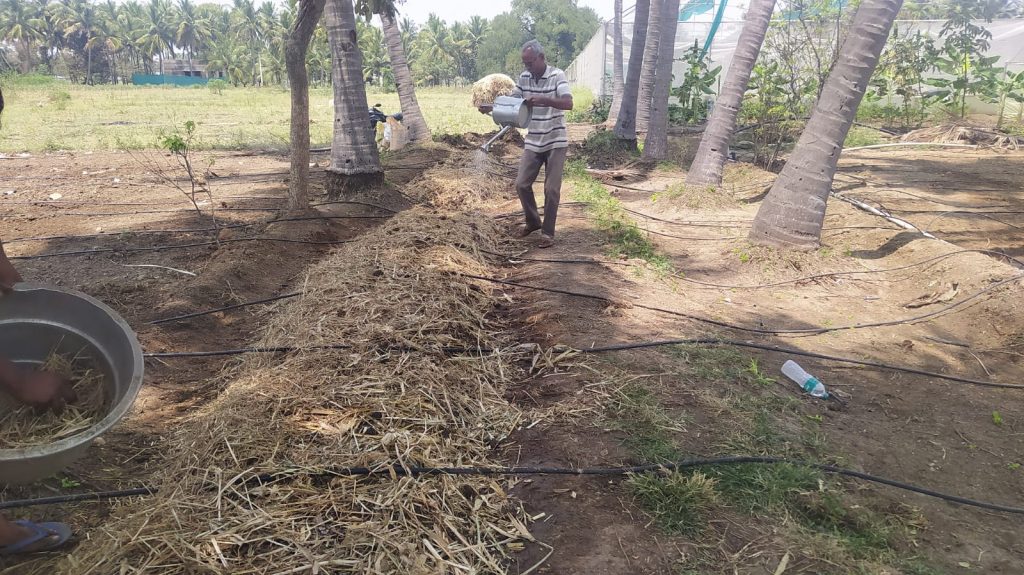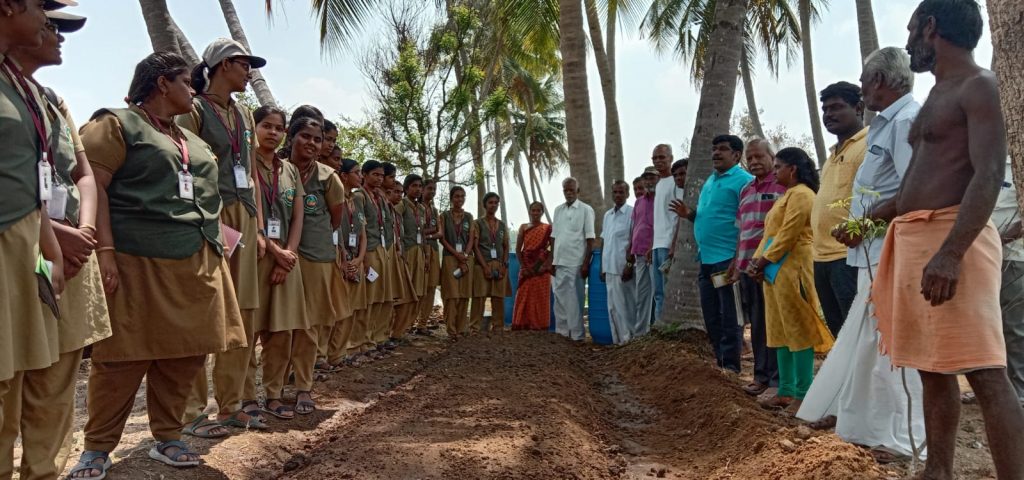On March 7th, 15 organic farmers tested the System of Water for Agriculture Rejuvenation (SWAR) technology in Michelpalayam, Nillakottai Block, Dindigul. The demo took place in the Jasmine grandiflorum (Pichichi) and Jasminum sambac (Gundu Malli) fields.
SWAR is a relatively latest sub-surface irrigation technology developed by the Centre for Environment Concerns (CEC), Hyderabad, Telangana. This technology aims to provide water near the plant’s active growing root zone in the subsurface soil via a water diffuser embedded in the root zone; a dripper is attached to the drip lateral, and water is transferred through a micro-tube into a box containing quartz cut into small granular pieces to provide the best moisture distribution. By supplying moisture to the root zone, it minimises water application by 40-50% when compared to drip irrigation and reduces soil water evaporation. Water applied at the root zone provides a continual supply of moisture, increases microbial activity, reduces the frequency of irrigation water, reduces weed development, and disease infestation, increases soil aeration, and increases nutrient absorption.


A living compost demonstration was also conducted the next day in Pudupatti Village in the Dindigul district where the soil health is declining rapidly. This demonstration was attended by 30 farmers and 20 undergraduate students from a nearby agriculture college. The living compost increases the number of beneficial microorganisms including mycorrhiza in the soil and enhances soil health. The initial bed is prepared using Farm Yard Manure (FYM), Red soil/local field soil, Groundnut cake, Jeevamitham and Jaggery beneath a Banyan tree, then on the seventh day, Navadhanya seeds are sown into the bed and mulched with paddy straw on top. The compost will be suitable for field application after 21 days.
Farmers learnt about SWAR technology and living compost, evaluating how it is working in their context.

